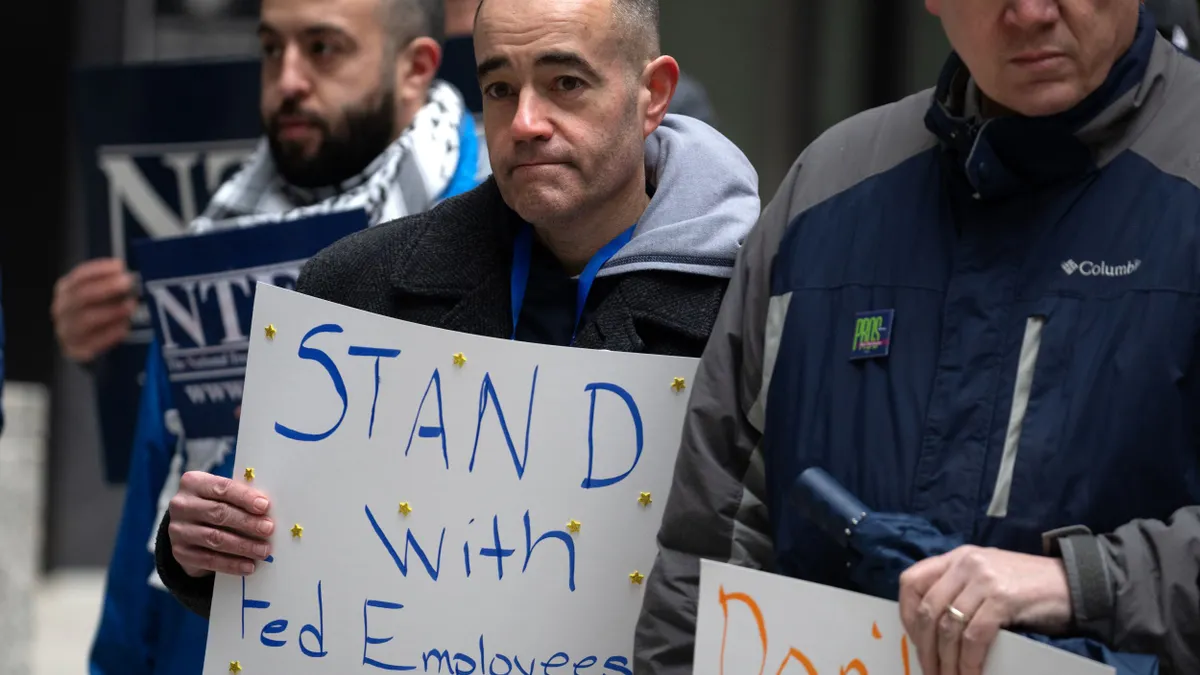State and local laws are HR’s biggest compliance concern right now, according to our recent reader poll. While the federal government works to reduce regulations on businesses, states and cities (and even counties) are increasingly enacting employee-friendly laws — with no signs of stopping.
“It’s a really big patchwork of laws that makes it complex for employers to comply with,” Alonzo Martinez, associate counsel-compliance at HireRight, told HR Dive. But legislation is driven by what voters want, he said, and legislators are hearing that their constituents want more protections.
State law trends
One type of legislation — "ban the box" laws — has been a particular focus for state and local legislatures. This kind of legislation generally restricts employers from asking potential employees if they have a criminal record before an offer is made.
While there are some jobs in which a criminal record may be an immediate disqualifier (i.e. a DUI for a school bus driver or an embezzlement conviction for a bank teller applicant), criminal convictions may not reflect an applicant’s ability to do the job, explains Sandra Rappaport, a partner at Hanson Bridgett, LLP. This type of law is both a preventative measure and a fix, she says; “automatic disqualification was disproportionately affecting certain groups when there was not a good reason to."
There's been a lot of action around minimum wage rates, too, although often through ballot measures. The federal minimum wage remains at $7.25, but other jurisdictions are setting their rates significantly higher, with local laws sometimes even outdoing state law. In California, for example, the state minimum wage for employers with more than 26 employees is $11 per hour, but in Oakland, the minimum is $13.23 per hour. Less than an hour away, in Mountain View, the wage tops out at $15 per hour. The state rate, however, is slated to reach $15 for all employers by 2023.
Paid sick leave remains a favorite for state and local governments as well. Generally, these laws are making it easier for employees to qualify for leave and accrue it, and use it for more purposes, according to Marc Zimmerman, a partner at Michelman & Robinson, LLP. These laws sometimes include "safe leave" as well, which gives employees time off following domestic violence or sexual assault.
Other trends are cropping up, too, but aren't quite as widely adopted as others. While the federal government considers how (or whether) to replace the Obama administration's proposed overtime rule, states and cities are beginning to adopt their own salary thresholds, Zimmerman noted. These laws set a compensation floor for overtime eligibility.
Pregnancy accommodation laws are catching on. And then there are predictable scheduling laws, which protect employees from last-minute scheduling changes without additional compensation. Tip pooling laws limit redistribution of gratuities. And salary history bans, which have gained a fair amount of traction, prohibit employers from asking about applicants' compensation histories.
Looking ahead
While the compliance challenge for multi-jurisdiction employers is obvious, the solution is less so. Companies must decide whether to follow the rules for each location or approach the issue more holistically, creating common guidelines to use across the board, Martinez said. And it's not always as simple as merely implementing the most generous law company-wide; individual laws can have their own notice requirements, for example, meaning employers can't merely ignore less-generous laws.
These laws also have ramifications for recruiting and retention, notes Rappaport. Companies outside — but near — jurisdictions with more employee-friendly laws (like a relatively high minimum wage, for example) may find recruiting and retention tricky and may have to consider whether to match that pay.
Unfortunately for employers, experts don't predict an end to the chaos anytime soon. Those representing the employer community have pushed back with litigation and legislation, but it remains to be seen whether they'll have any success.
For now, employers will have be diligent about compliance and remember that relevant federal laws are still in effect, too. But remember, says Zimmerman: "If the federal law provides a floor, not a ceiling, the states can jump in and say 'the floor is not enough; we’re going to make a higher floor or a lower ceiling.'"



















